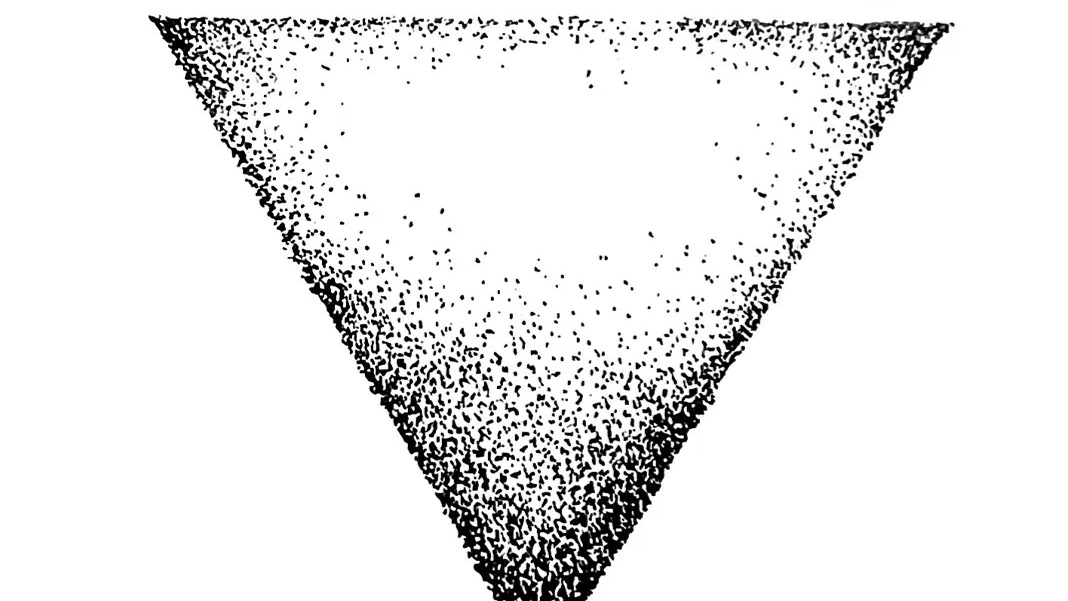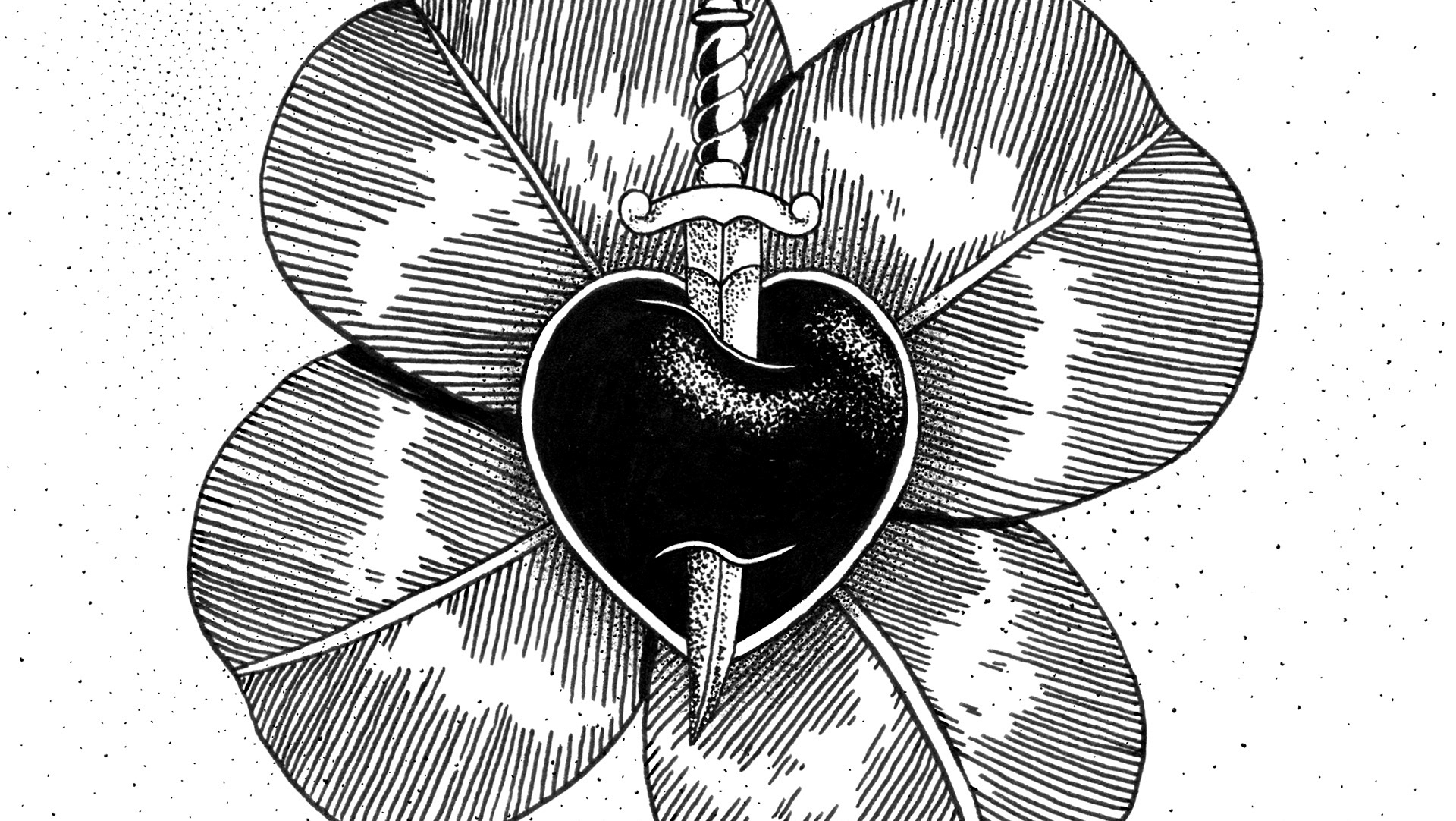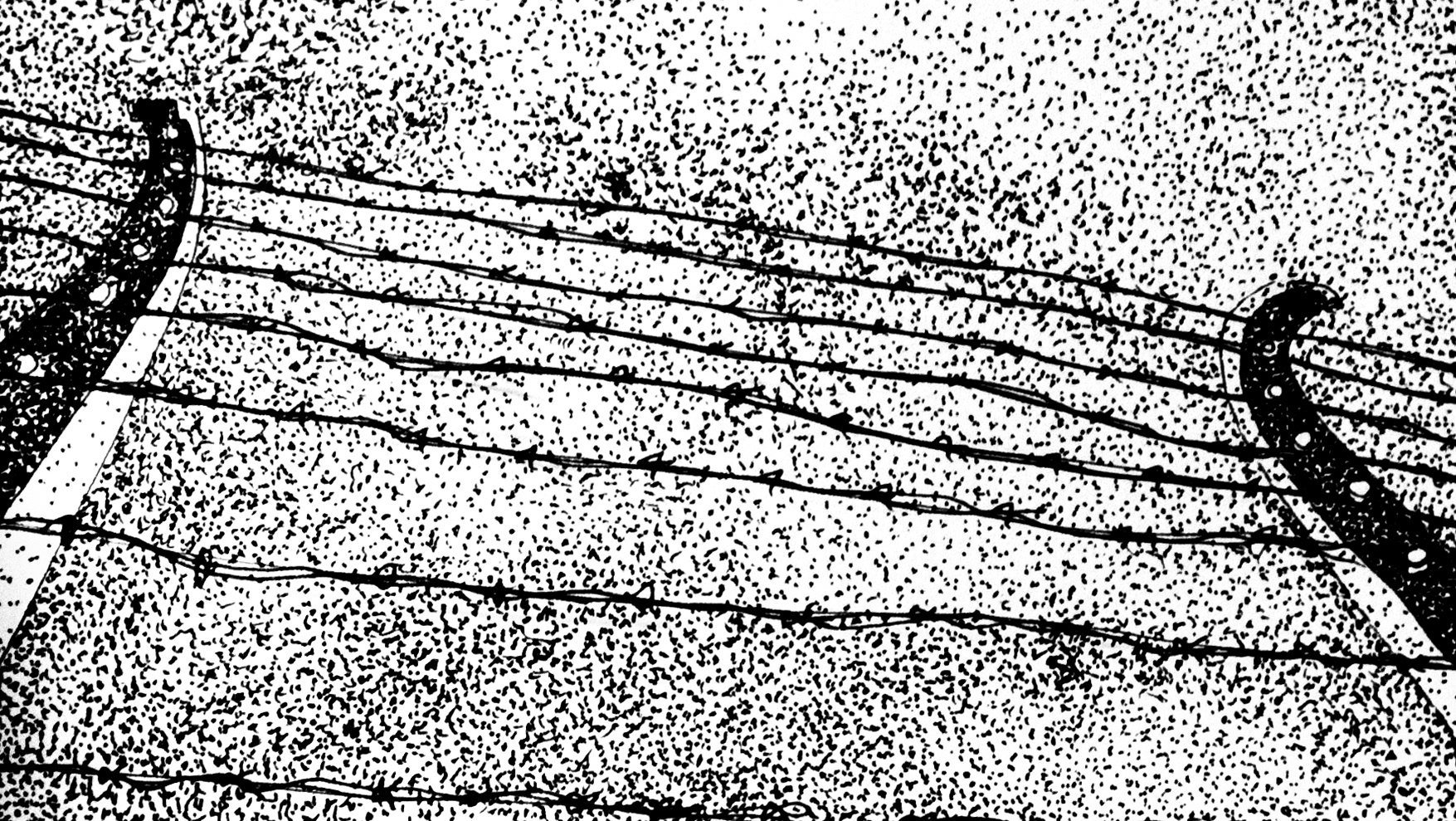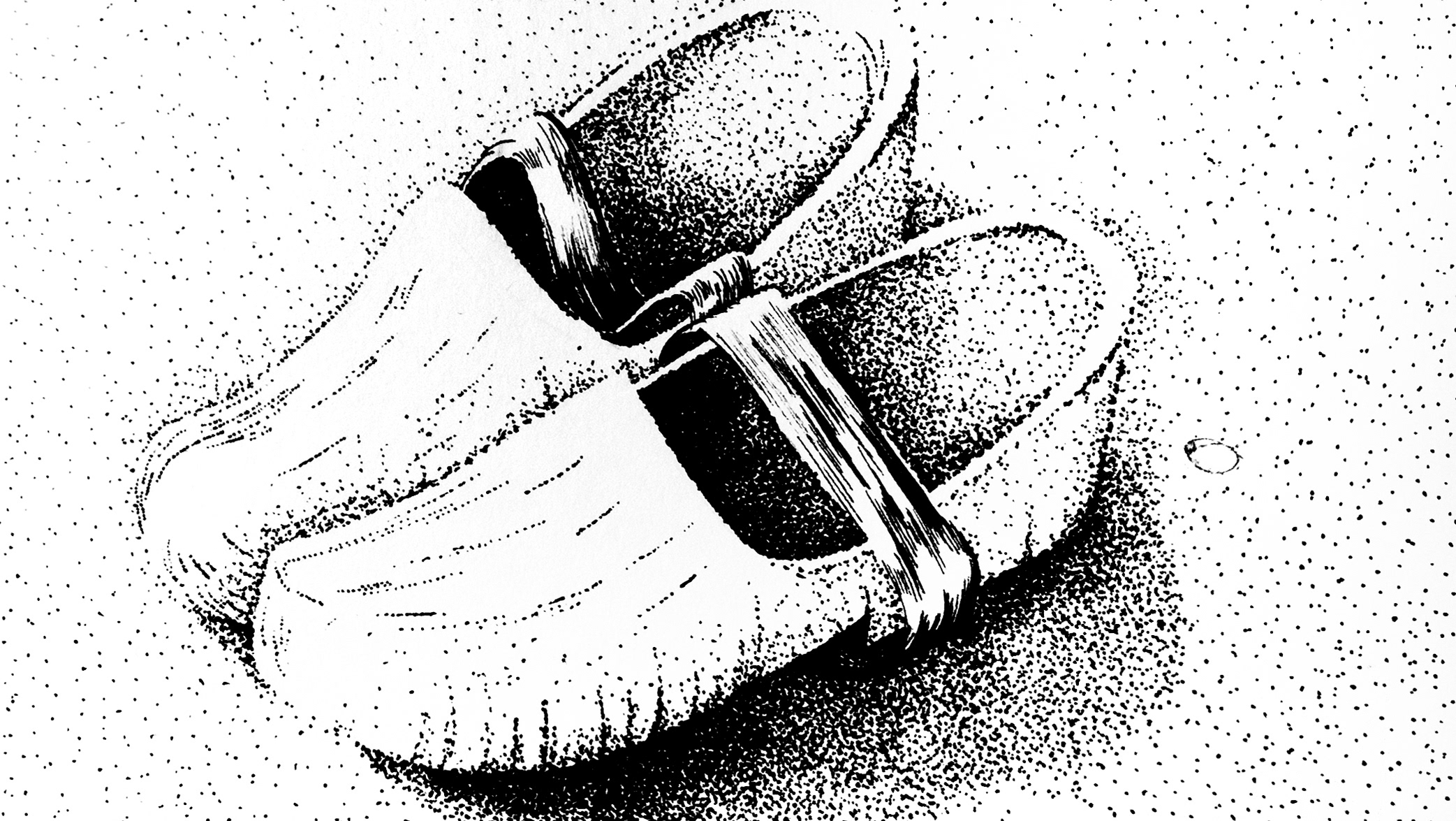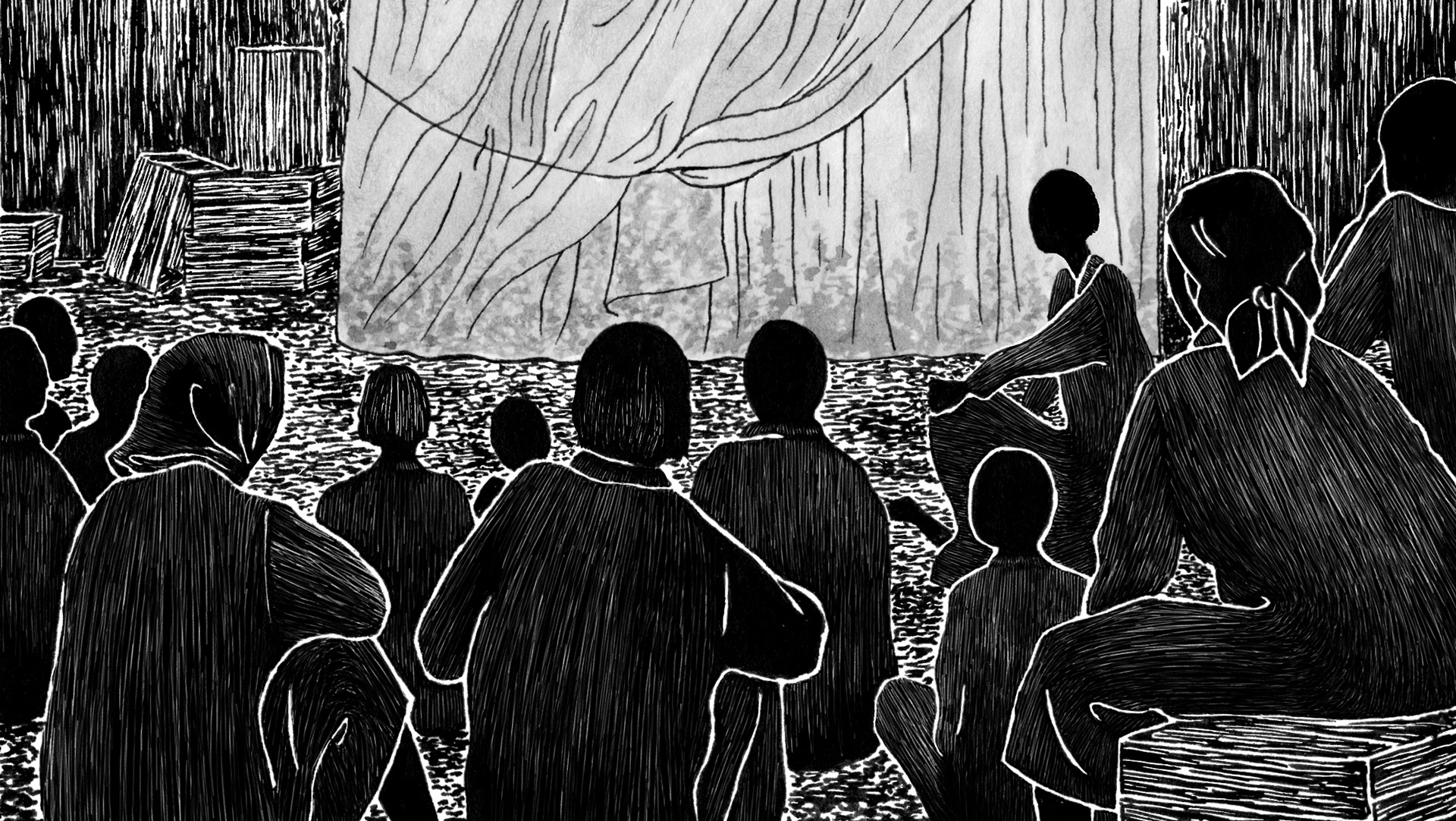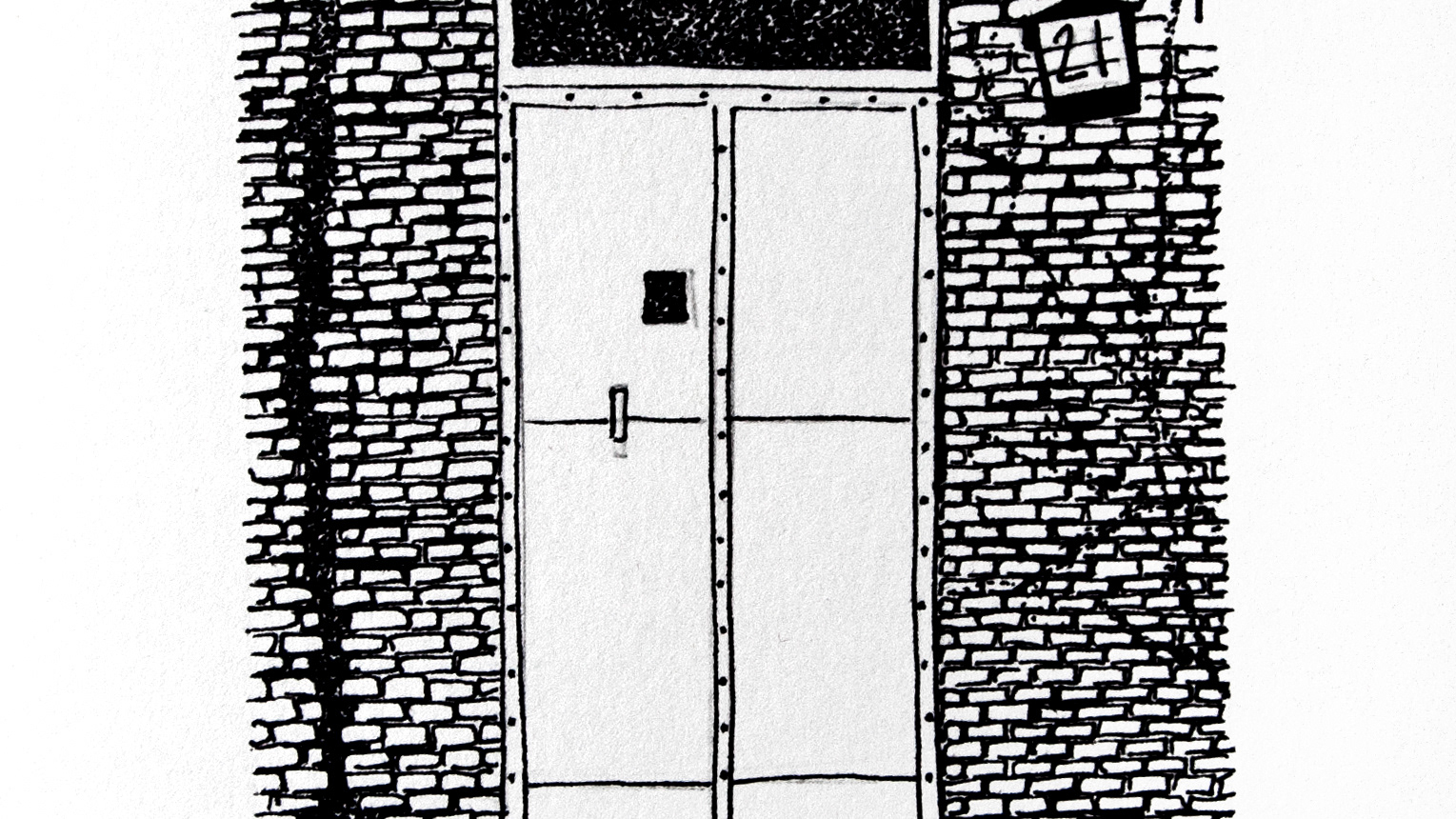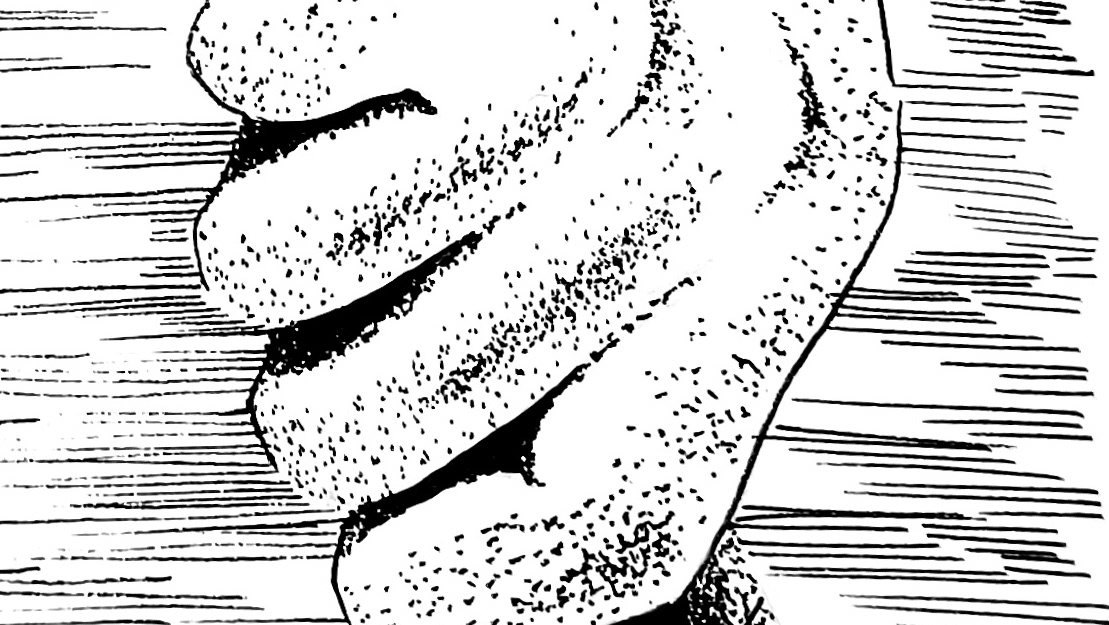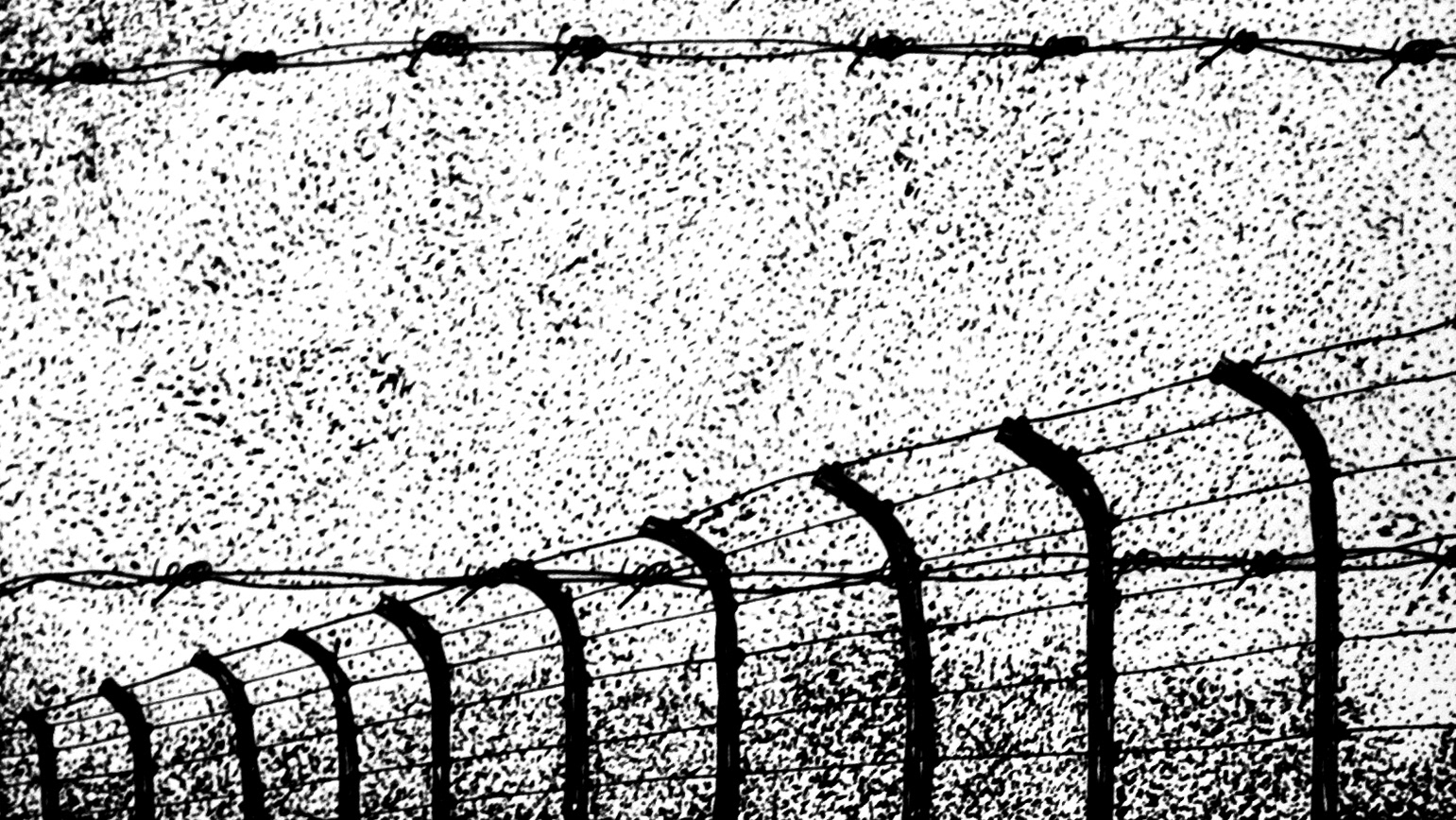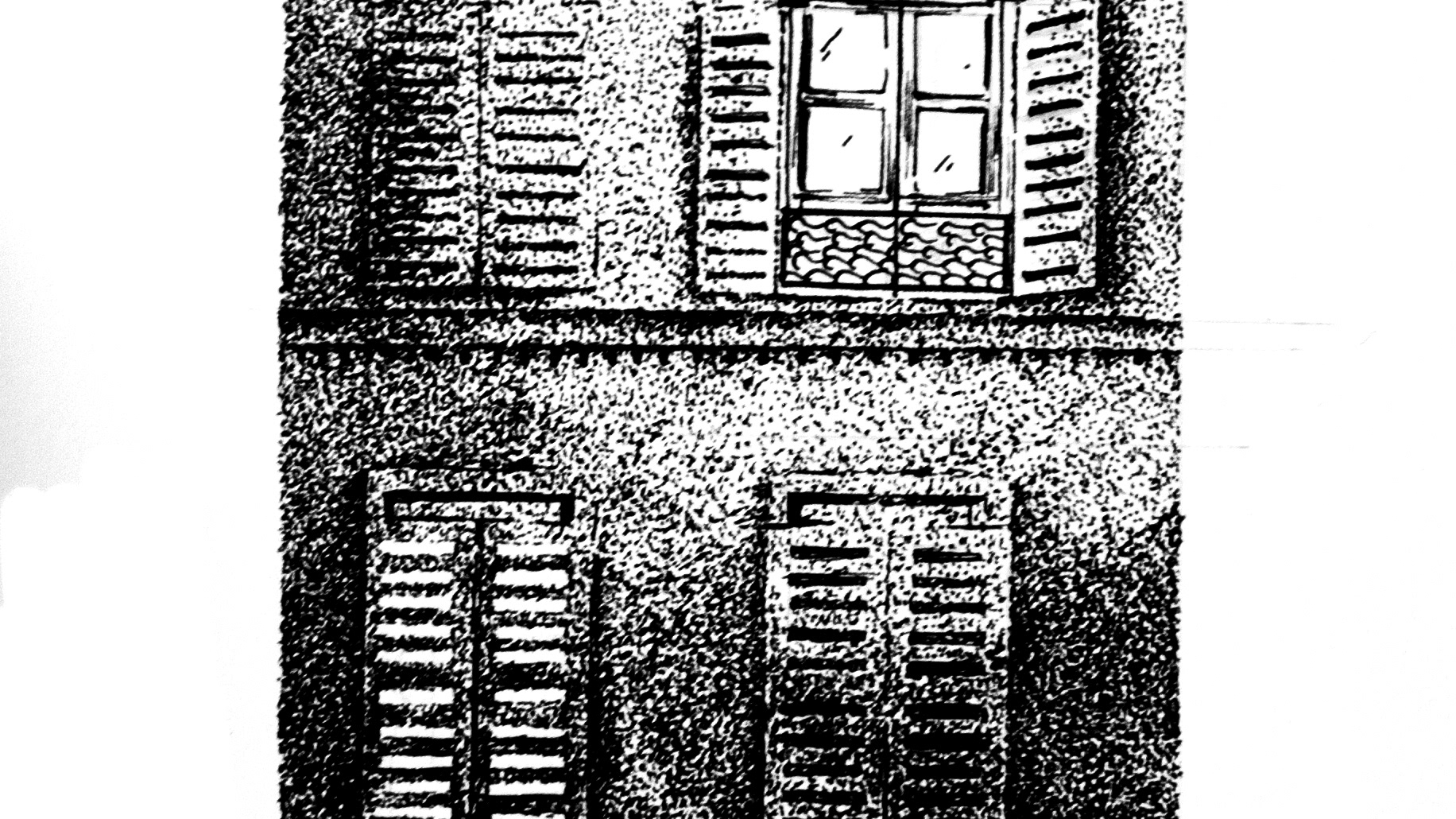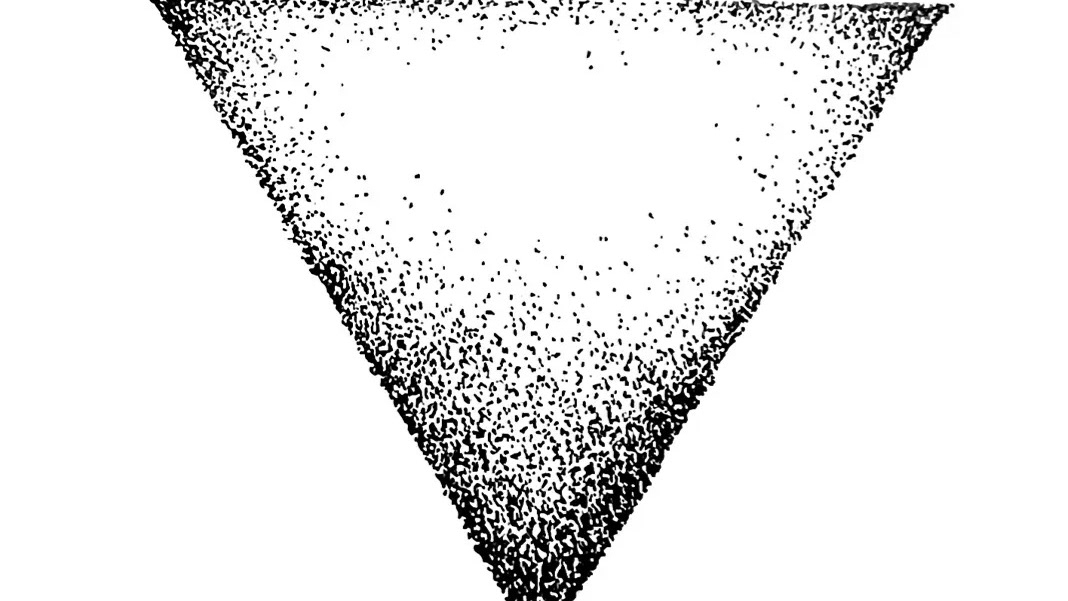Today is the 27th of January 1946. Marie-Claude Vaillant Couturier has taken days off her work at the french government. She is back in Germany, in Nuremberg. She had promised herself not to come back to the country, ever, she hesitated a lot, but there she is. She had to come, for herself, for all the 31000, for all of those who weren’t there anymore.
This is the 44th day of the Nuremberg trials, 24 of the most prominent members and leaders of Nazi Germany are judged. It had been decided that the trials of Nuremberg would decide of the war crimes of Nazi Germany, it would be an international trial, with judges coming from the Allies countries, including France, and defense lawyers from Germany. The city of Nuremberg had been chosen for different reasons, one of them was that Nuremberg was known for being the birthplace of the nazi party. This felt like a good idea to end it where it all started.
Out of the 24 accused men, Hermann Goring is the most important one. He had helped creating the Gestapo, as well as ordering the application of the final solution, the jewish extermination.
He is also the most important figure still alive. Adolf Hitler and Joseph Goebbels commited suicide in a bunker, Heinrich Muller and Adolf Eichmann disappeared, Reinhard Heydrich was assassinated by czech partisans, Joseph Terboven blew himself up with dynamite in Sweden, and Heinrich Himmler managed to kill himself a day after he got caught by british forces.
Goring and those 23 men had to be judged. The crimes of nazi Germany were beyond anything ever recorded before. The trial began with the reading of four counts of indictments, conspiracy to wage aggressive war, crimes against peace, war crimes, and the last count, which had been created for this trial.
Crime against humanity.
"The wrongs which we seek to condemn and punish have been so calculated, so malignant and so devastating than civilisation cannot tolerate their being ignored, because it cannot survive their being repeated." Telford Taylor, american counsel for the prosecution
The german administration attempted to destroy as much evidence of the extermination as possible, fortunately the amount of paperwork and evidence still existing was enough. During the first days of the trial, the judges easily laid out evidence proving that the german administration planned on the extermination of the jews, tsiganes, poles, Soviet Union and homosexuals, as well as a war on a global scale. There were signatures, conferences recorded on paper, and multiple photographic evidence of the extermination camps. The SS may have blown up as many gas chambers they could, they also built too many of them.
The judges also needed witnesses, they presented some of them who could testify of war crimes, of the final solution organisation, they also needed first hand witnesses of the extermination camps.
This is the reason why Marie-Claude is here. She is about to testify. And she has a lot to say.
Back in 1934, Marie-Claude was a reporter and photograph. She was sent by her newspaper to visit Dachau and Oranienburg concentration camps. It was a first warning for her, she knew what terror nazi germany was capable of. She brought back pictures, but back in France no one seemed to care.
Resisting from the start, she was arrested on the 9th of February, with all her friends. Like the others, she refused to talk, pressure and violence was used against her. Finally, it was decided that deportation would be a suitable punishment. Marie-Claude thought she was prepared for the camps, but Auschwitz-Birkenau wasn't a concentration camp, it was an extermination camp.
She struggled, she caught typhus, she lost her closest friends, Mai Politzer, Danielle Casanova. She saw Annette Epaud giving water to women on their way to the gas chambers. She was punished by the SS by going to the gas chambers as well.
Marie-Claude spoke german fluently, it was an asset in the camp, a way to help her friends navigate the absurd rules. She survived and was sent to the quarantine with the others. In august 1944, she was sent to Ravensbruck, Marie-Claude quickly joined the resistance group.
In April 1945, the SS ran away and left the last prisoners of Ravensbruck on their own, locked, without any food. Marie-Claude and Dr Adelaide Hautval took charge of the camp, the women's camp as well as the men's camp.
They would have been all starving to death yet the Allies arrived and brought provisions. Some of the men and women were far too weak, too sick, they couldn't be evacuated, nothing could save them anymore. Marie-Claude and Dr Hautval stayed until the end, they didn't want to leave anyone behind. So many were saved thanks to them, they witnessed the last days of so many more. They came back on the 25th of June 1945, amongst the last of the 31000 to come back.
Marie-Claude found her family in France, they were still alive. Her companion, Roger Ginsburger, was still alive, partly thanks to Charlotte Delbo who helped him running away as she was being arrested. Marie-Claude was lucky, not many 31000 found their family back in France, even though luck is an odd word to use for a 31000.
230 women formed the 31000, 49 came back. It wasn't much, but it was a very high number compared to the others.
The 31000 knew that the jewish population suffered even more. There was no quarantine for them, no revier, no rules, absolutely nothing and noone to protect them. 3 weeks after their arrival in January 1943, a train arrived from France, a train of jewish women, members of the resistance. Some were close friends of the 31000, they had met at the Romainville fort before they had been transferred to Drancy. Out of the 1200 who arrived, only 125 got into the camp, the rest were sent to the gas chambers right away. Within a month, none of the 125 survived. More than a million jewish women, men, and children died in Auschwitz-Birkenau.
Back to the present, Marie-Claude does her best to forget nothing, no one, she wishes to tell everything she can. But there is so much more she wishes to tell.
Last year, not many seemed to care about what she was. But today is a different day, today everyone listens to her.
A few months after the trial, most of the 24 men are judged guilty and sentenced. Many more trials will follow, leading to the condemnation of 5006 people, 794 death sentences, 486 executions of those sentences.
She wishes that those who arrested her in France were trialed. Many of them won't. She wishes that Petain and the Vichy regime was judged appropriately, it won't. She wishes that companies such as Siemens or Ig Farben, who had factories right near the concentration camp so they could make good use of the prisoner's labor, were judged. They won't. All of this is disappointing to her, there is much to fight against still in the future.
Today is the 8th of February, it’s been a few days that she’s been back to France. She came back home to her companion Roger and son Thomas Ginsburger. She hugged him for a while, walked around in her garden, as if a page had been turned, for better or worse. Marie-Claude is interviewed by a journalist of "Regards" magazine. The journalist asks if she had been able to watch the accusers' reactions as she was speaking. Marie-Claude replied.
"Yes. I had the satisfaction of staring at Hermann Goring. I felt that, through me, millions of women were accusing him."
A small victory, a victory nonetheless.
Notes
Thank you for listening to this episode of 31000/45000, the story of 2 trains of french members of the resistance. My name is Matthieu Landour Engel.
This episode was about Marie Claude Vaillant Couturier and the Nuremberg trial.
I have already read part of the testimony she gave on the trial during an episode about Therese Lamboy, here is the rest of it.
Charles Dubost is the french prosecutor.
DUBOST: Can you tell us about the selections that were made at the beginning of winter?
VAILLANT-COUTURIER: ... During Christmas 1944-no, 1943, Christmas 1943-when we were in quarantine, we saw, since we lived opposite Block 25, women brought to Block 25 stripped naked. Uncovered trucks were then driven up and on them the naked women were piled, as many as the trucks could hold. Each time a truck started, the infamous Hessler ... ran after the truck and with his bludgeon repeatedly struck the naked women going to their death. They knew they were going to the gas chamber and tried to escape. They were massacred. They attempted to jump from the truck and we, from our own block, watched the trucks pass by and heard the grievous wailing of all those women who knew they were going to be gassed. Many of them could very well have lived on, since they were suffering only from scabies and were, perhaps, a little too undernourished....
Since the Jewesses were sent to Auschwitz with their entire families and since they had been told that this was a sort of ghetto and were advised to bring all their goods and chattels along, they consequently brought considerable riches with them. As for the jewesses from Salonika, I remember that on their arrival they were given picture postcards bearing the post office address of "Waldsee," a place which did not exist; and a printed text to be sent to their families, stating, "We are doing very well here; we have work and we are well treated. We await your arrival. I myself saw the cards in question; and the Schreiberinnen, that is, the secretaries of the block, were instructed to distribute them among the internees in order to post them to their families. I know that whole families arrived as a result of these postcards.
[Cross-examination by Dr. Hanns Marx, attorney for Julius Streicher:]
DR. HANNS MARX: ... Madame Couturier, you declared that you were arrested by the French police?
MME. VAILLANT-COUTURIER: Yes.
MARX: For what reason were you arrested ?
VAILLANT-COUTURIER: Résistance. I belonged to a resistance movement.
MARX: Another question: Which position did you occupy? I mean what kind of post did you ever hold? Have you ever held a post?
VAILLANT-COURURIER: Where?
MARX: For example, as a teacher?
VAILLANT-COUTURIER: Before the war? I don't quite see what this question has to do with the matter. I was a journalist.
MARX: Yes. The fact of the matter is that you, in your statement, showed great skill in style and expression; and I should like to know whether you held any position such, for example, as teacher or lecturer.
VAILLANT-COUTURIER: No. I was a newspaper photographer.
MARX: How do you explain that you yourself came through these experiences so well and are now in such a good state of health?
VAILLANT-COUTURIER: First of all, I was liberated a year ago; and in a year one has time to recover. Secondly, I was 10 months in quarantine for typhus and I had the great luck not to die of exanthematic typhus, although I had it and was ill for 31/2 months. Also, in the last months at Ravensbruck, as I knew German, I worked on the Revier roll call,2 which explains why I did not have to work quite so hard or to suffer from the inclemencies of the weather. On the other hand, out of 230 of us only 49 from my convoy returned alive; and we were only 52 at the end of 4 months. I had the great fortune to return.
MARX: Yes. Does your statement contain what you yourself observed or is it concerned with information from other sources as well?
VAILLANT-COUTURIER: Whenever such was the case I mentioned it in my declaration. I have never quoted anything, which has not previously been verified at the sources and by several persons, but the major part of my evidence is based on personal experience.
MARX: How can you explain your very precise statistical knowledge, for instance, that 700,000 Jews arrived from Hungary?
VAILLANT-COUTURIER: I told you that I have worked in the offices; and where Auschwitz was concerned, I was a friend of the secretary (the Oberaufseherin), whose name and address I gave to the Tribunal.
MARX: It has been stated that only 350,000 Jews came from Hungary, according to the testimony of the Chief of the Gestapo, Eichmann.
VAILLANT-COUTURIER: I am not going to argue with the Gestapo. I have good reasons to know that what the Gestapo states is not always true.
MARX: How were you treated personally? Were you treated well?
VAILLANT-COUTURIER: Like the others.
MARX: Like the others? You said before that the German people must have known of the happenings in Auschwitz. What are your grounds for this statement?
VAILLANT-COUTURIER: I have already told you: To begin with there was the fact that when we left, the Lorraine soldiers of the Wehrmacht who were taking us to Auschwitz said to us, "If you knew where you were going, you would not be in such a hurry to get there." Then there was the fact that the German women who came out of quarantine to go to work in German factories knew of these events, and they all said that they would speak about them outside.
Further, the fact that in all the factories where the Hafflinge (the internees) worked they were in contact with the German civilians, as also were the Aufseherinnen, who were in touch with their friends and families and often told them what they had seen.
MARX: One more question. Up to 1942 you were able to observe the behavior of the German soldiers in Paris. Did not these German soldiers behave well throughout and did they not pay for what they took?
VAILLANT-COUTURIER: I have not the least idea whether they paid or not for what they requisitioned. As for their good behavior, too many of my friends were shot or massacred for me not to differ with you.
MARX: I have no further question to put to this witness.
This is the end of the testimony.
I made some assumptions regarding the travel of Marie to Nuremberg apart from that I tried to be as faithful as I could.
The story of Annette Epaud, who gave water to the jewish women, and was punished by being selected to the gas chamber, is a true story. Annette epaud was made righteous amongst the Nation.
The Nuremberg trial were the most important trials of Nazi Germany, leading to many condamnations. Yet some weren't judged, people like Adolph Eichmann, responsible of the transports to the concentration and extermination camps. He managed to escape and hide in Argentina for more than a decade before the Mossad, the israeli secret services, extracted him to Israel and he was later judged in a separate trial.
Heinrich Muller, the chief of the gestapo, disappeared, he was assumed dead yet may have escaped judgement. His fate remains unknown to this day.
Many more members of the Nazi administration were not judged, for various reasons, there is a point where you can't judge everyone who only carried orders, even terrifying orders. You can't judge the men who drove the trains, you can't judge those who built the barracks or installed the electrified fences, there is a point where you can't judge everyone.
But Marie Claude was right to be disappointed that some were never judged, like the companies who used the prisoners as cheap labour for the sake of profit, like IG Farben or Siemens. She was right to be disappointed when many members of the french administration, serving the Vichy Regime, were not judged or were pardoned very quickly.
Now I would like to tell you more about Marie Claude Vaillant Couturier because she is an important figure of France. After the war, she was elected as a communist deputy for several terms, vice president of the french national assembly, and president of the foundation of the memory for deportation, amongst other positions.
In 1964, she actively fought for the notion of crimes against humanity to become imprescriptible, which she helped make happen. She also actively fought for salary equality between men and women, more rights for pregnant women at work, rights for adoption, and pushed for peace movements.
On top of that she was also a photograph reporter.
She was many things things, she was a remarkable woman.
I have been trying to find Marie-Claude Vaillant Couturier’s relatives, unfortunately, my research was unsuccessful. If by any chance, you know of someone related to her please let me know, I would be very pleased to get in touch and make sure the text I wrote doesn’t contain any errors.
Thank you very much for your attention next episode will be about Francis Joly and the Sanders trial.
